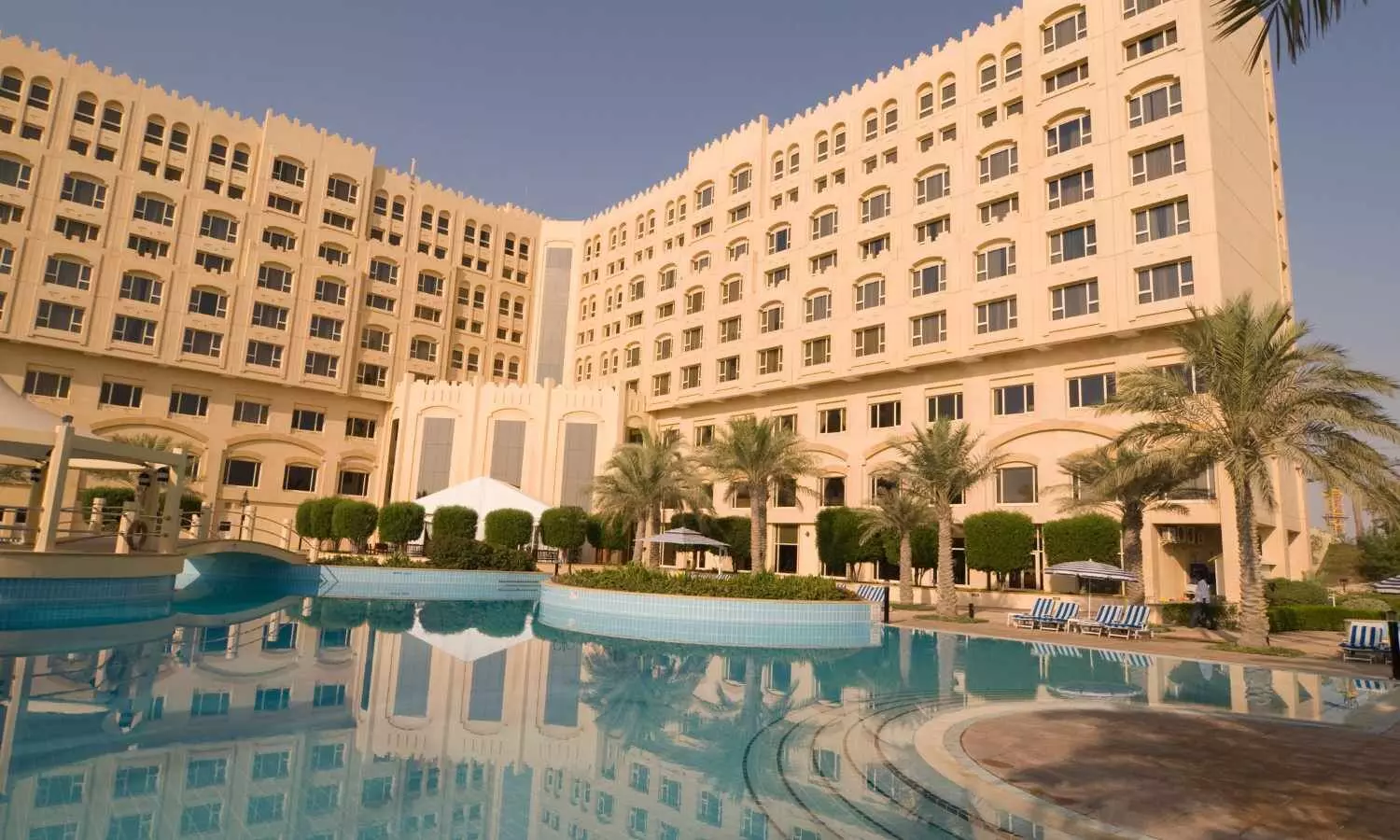Luxury Hotels continue expansion
Luxury hotels are continuing their expansion globally, with new openings, renovations, and increased investments aimed at catering to high-end travelers and boosting tourism.
Luxury Hotels continue expansion

Luxury hotel prices in 2025-26 are expected to rise due to the luxury hospitality market's continued expansion and the inclusion of hotels in the infrastructure sector. The market, valued at $154.32 billion in 2024, is projected to reach $166.41 billion in 2025, according to www.luxuryhotelschool.com, with a CAGR of 11.5% until 2032. This growth is fueled by increased investment and financing opportunities resulting from the government's recognition of the hospitality sector.
The main types of luxury hotels are business hotels, airport hotels, suite hotels, resorts, and others. Business hotels are establishments specifically designed to cater to the needs and preferences of business travelers. The room types involved are luxury, upper-upscale, and upscale, which are categorized as chain and independent.
The sector’s appeal is reinforced by significant investments. The number of ultra-luxury hotel rooms is expected to increase by 12% by 2033, adding to the impressive 46% growth seen in the last decade. Mergers and acquisitions reached $286 million in 2023, reflecting investor confidence.
This growth is accompanied by strong performance from hotel groups in 2024, with continuous expansion projected for 2025. Major players like Hyatt, Hilton, Choice Hotels, Marriott, Radisson, and Wyndham have bolstered their international presence through significant portfolio expansions. In the coming years, these groups are expected to open thousands of new rooms worldwide, covering a broad range of segments from luxury to extended stays. The diversification of offerings and entry into new markets position these companies well for further development in 2025 and beyond.
Hilton plans a net growth of its units between 6% and 7% by 2025, launching the “Hilton for Luxury” program, a global initiative for luxury travel advisors aimed at offering bespoke experiences. It also plans to open over 500 luxury properties in strategic high-potential destinations, including the reopening of the iconic Waldorf Astoria after its meticulous restoration, combining original Art Deco architecture with contemporary design.
Accor, meanwhile, reported a 12% increase in its revenue in Q3 2024 and plans to continue this growth with new high-value-added propositions, such as luxury train travel with “La Dolce Vita Orient Express,” combining slow travel and luxury through Italy. They are also integrating innovative concepts into their new hotels, like the Faena New York, promising “experimental hospitality,” or developing unique locations like the former US Embassy in London and the ex-court of justice in Amsterdam, along with beachfront retreats focusing on wellness.
Despite global economic challenges, luxury hospitality continues to demonstrate its resilience and growth potential. The focus on customer experience, personalization, and the integration of new technologies promises a bright future for the sector.
The outlook for the coming years is particularly promising:
Sustained Growth: The global luxury market, including hospitality, is expected to grow at an annual rate of 5-7% until 2030. Specifically for luxury hospitality, an impressive CAGR of 10.5% is anticipated until 2030.
Market Expansion: By 2030, the luxury hospitality market could reach $238.4 billion, aligning with the broader luxury market trend, which is expected to be worth between €2,000 and €2,500 billion.
New Markets: Over 300 million new buyers are expected to join the luxury market by 2030, particularly in China, India, Latin America, and Africa.
Technological Innovation: Mobile apps will become a standard in luxury hotels by 2030, facilitating not only bookings but also enhancing the overall customer experience.
Massive Investments: The sector is set to receive colossal investments, amounting to €6 trillion by 2030, underscoring investor confidence in the future of luxury hospitality.
Luxury hospitality presents a dynamic, innovative, and highly promising market. These attractive prospects come with challenges, particularly regarding personalization, sustainability, and technology integration. The players who successfully capitalize on these trends and meet the ever-growing expectations of a demanding clientele—such as “travel maximizers” seeking unique experiences that blend adventure, relaxation, and personal enrichment—will be the big winners in this new era of luxury hospitality.
In this rapidly changing landscape, the Luxury Hotelschool stands out as a key player, 100% dedicated to luxury hospitality. Through its top-tier training programs, it prepares future professionals to meet the challenges of this demanding sector. Whether for students or professional training, the school works alongside the largest hotel groups, developing talent and transmitting the skills necessary for excellence in service.
The luxury hotel market size is expected to see steady growth in the next few years. It will grow to $137.89 billion in 2029 at a compound annual growth rate (CAGR) of 5.0%. The growth in the forecast period can be attributed to continued economic prosperity, rising middle-class aspirations, sustainable and eco-friendly practices, health and wellness tourism, unique and authentic experiences, strategic partnerships and collaborations.

